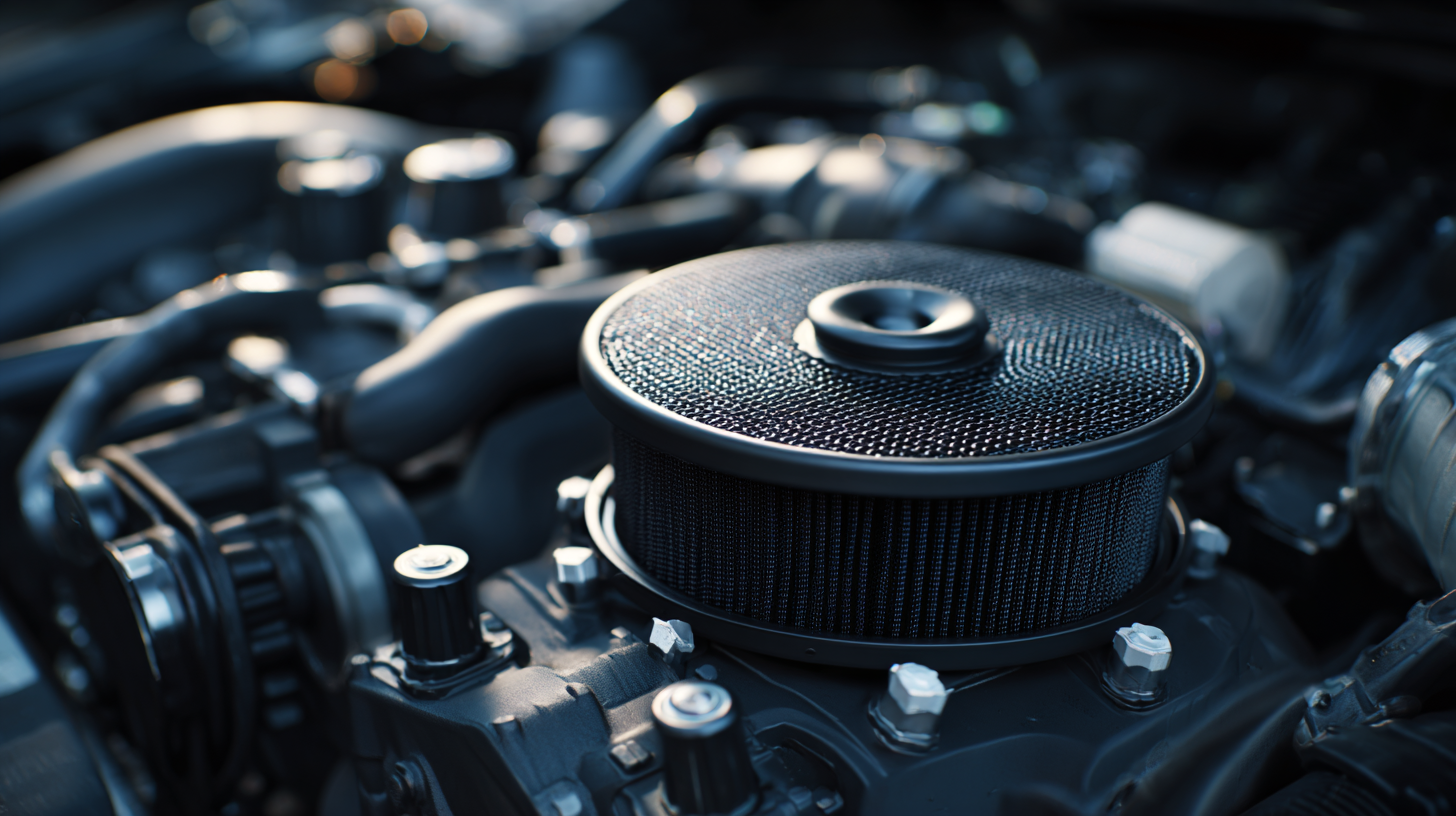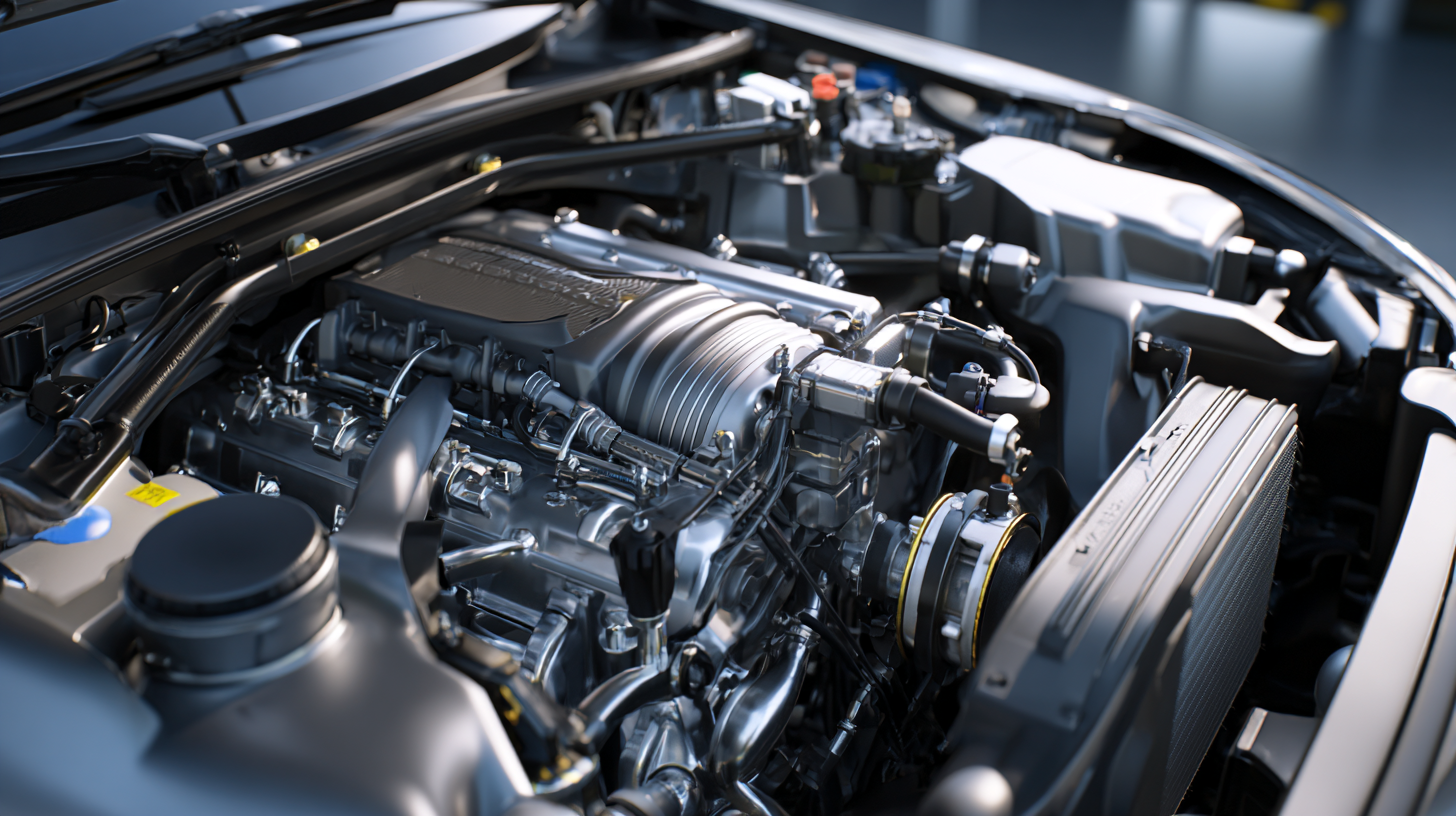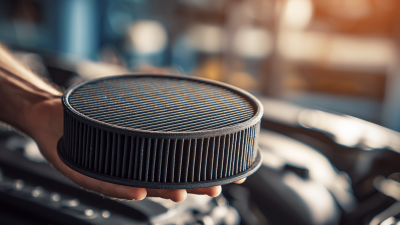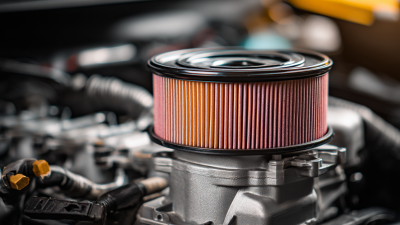In the quest for improved fuel efficiency, many vehicle owners often overlook the significance of automotive filters. While most drivers are familiar with common components like oil and air filters, there are lesser-known filters that play a crucial role in optimizing vehicle performance. This article will delve into the top five automotive filters that can unexpectedly influence your fuel economy by as much as 20%. By understanding how these filters function and their specific impacts on engine efficiency and air quality, you can take proactive steps to enhance your vehicle's performance. Whether you're a casual driver or an automobile enthusiast, recognizing the importance of these automotive filters is essential for maintaining not only the fuel efficiency of your car but also its longevity and overall health. Join us as we explore these hidden heroes of the automotive world and discover practical tips on how to keep them in check for an efficient driving experience.

Automotive filters play a crucial role in enhancing fuel efficiency, often overlooked by many vehicle owners. These filters, functioning as the vehicle's "kidneys," effectively remove impurities from fuel, air, and oil, ensuring that engines operate at optimal performance. In recent developments, the integration of smart actuators equipped with advanced sensing and communication capabilities has emerged as a significant market trend. This advancement allows for real-time monitoring and adjustments, further enhancing the efficiency of filters and their impact on fuel consumption.
As we delve into the specifics of various automotive filters, it becomes evident that the quality and maintenance of these components are vital. Regularly replacing air filters, fuel filters, and oil filters can lead to noticeable improvements in fuel economy—sometimes up to 20%. Moreover, with the automotive industry's shift toward cleaner and more efficient technologies, the role of filters in ensuring the effective performance of modern engines is more critical than ever. The ongoing evolution of filter technology promises not only to optimize engine efficiency but also to contribute to a more sustainable automotive future.
When it comes to optimizing fuel efficiency, most vehicle owners focus on main components like the engine and tires. However, several lesser-known automotive filters play a crucial role in enhancing overall vehicle performance and can impact fuel economy significantly. Among these, the cabin air filter is often overlooked, yet it not only improves the quality of air within the vehicle but also ensures that the engine breathes clean air. A clogged cabin air filter can lead to reduced airflow to the engine, forcing it to work harder and leading to a decrease in fuel efficiency.
Another critical filter that deserves attention is the fuel filter. It is responsible for cleaning the fuel before it reaches the engine. If it becomes overly dirty or clogged, it restricts fuel flow, which can lead to inefficient combustion and the potential for increased fuel consumption. Ignoring the maintenance of these filters can result in substantial costs at the pump. Additionally, the transmission filter should not be dismissed. A clean transmission filter helps ensure that the transmission fluid flows freely, leading to optimal engine performance and, consequently, better fuel efficiency. Maintaining these lesser-known filters can lead to significant improvements in your vehicle's fuel economy and overall performance.
| Filter Type | Impact on Fuel Efficiency (%) | Maintenance Interval (Miles) | Common Symptoms of Failure |
|---|---|---|---|
| Fuel Filter | 10% | 30,000 - 50,000 | Decreased acceleration, rough idling |
| Air Filter | 15% | 15,000 - 30,000 | Reduced engine performance, black smoke |
| Cabin Air Filter | 5% | 10,000 - 20,000 | Poor air quality, strange odors |
| PCV Valve | 5% | 60,000 - 100,000 | Rough idle, increased oil consumption |
| Transmission Filter | 3% | 30,000 - 50,000 | Slipping transmission, poor acceleration |
Maintaining your vehicle's filters is crucial not just for performance, but also for fuel efficiency. A clean air filter, for instance, allows your engine to receive optimal airflow, which can significantly improve fuel combustion. Research suggests that a well-maintained air filter can enhance fuel efficiency by up to 10%. Furthermore, fuel filters prevent contaminants from entering the engine, ensuring that the fuel system operates efficiently. Neglecting these components can lead to diminished performance and increased fuel consumption.
Regular maintenance of oil and cabin filters also plays an overlooked role in fuel efficiency. A dirty oil filter can restrict oil flow, leading to increased friction and reduced engine efficiency. Meanwhile, a clogged cabin filter can strain the vehicle's HVAC system, which can inadvertently affect overall engine load. By routinely checking and replacing these filters, drivers can ensure that their cars run as smoothly as possible, potentially leading to significant fuel savings over time. Taking a proactive approach to filter maintenance can save drivers both money and fuel, enhancing the overall longevity of their vehicles.
When it comes to maximizing fuel efficiency in your vehicle, the importance of filters often goes unnoticed. Many drivers may not realize that maintaining and replacing automotive filters can significantly impact fuel economy—by as much as 20%. To ensure your vehicle is operating at its best, it’s essential to prioritize filter maintenance.
One practical tip for choosing the right filters is to look for high-quality, OEM (original equipment manufacturer) components. These filters are specifically designed for your vehicle and will provide better performance and protection compared to generic options. Additionally, always consult your owner’s manual for replacement intervals, as staying on schedule can prevent issues that lead to reduced fuel efficiency.
When it comes to replacement, don’t wait until a filter is visibly dirty or damaged. Regularly inspect your air, oil, and fuel filters, and replace them according to the recommended service intervals. A clean air filter ensures optimal airflow to the engine, while fresh oil and fuel filters protect against contaminants, enhancing overall engine performance and fuel economy. Taking these steps can lead to noticeable improvements in how efficiently your vehicle runs.

Investing in quality automotive filters is essential for maximizing fuel efficiency and overall vehicle performance. With the automotive filter market projected to grow significantly—estimated to reach $32 billion by 2035—it’s clear that consumers are becoming increasingly aware of the value these components bring. A key area of impact comes from filters that maintain clean airflow and optimize combustion, which can enhance fuel efficiency by up to 20%. When selecting filters, it's crucial to consider both short-term costs and long-term savings on fuel.

Tips for choosing quality automotive filters include checking compatibility with your vehicle model, looking for filters that meet or exceed OEM specifications, and considering maintenance intervals. Regularly replacing air and fuel filters not only contributes to better fuel efficiency but also prolongs engine life by ensuring a cleaner operation. Additionally, investing in high-efficiency particulate air (HEPA) filters can enhance cabin air quality, benefiting both vehicle occupants and the environment.
In an era where fuel efficiency is becoming more critical due to rising fuel costs and environmental considerations, the upfront investment in quality filters can pay off significantly. By prioritizing filter maintenance and quality, you can ensure your vehicle runs smoother, cleaner, and more efficiently for years to come.






